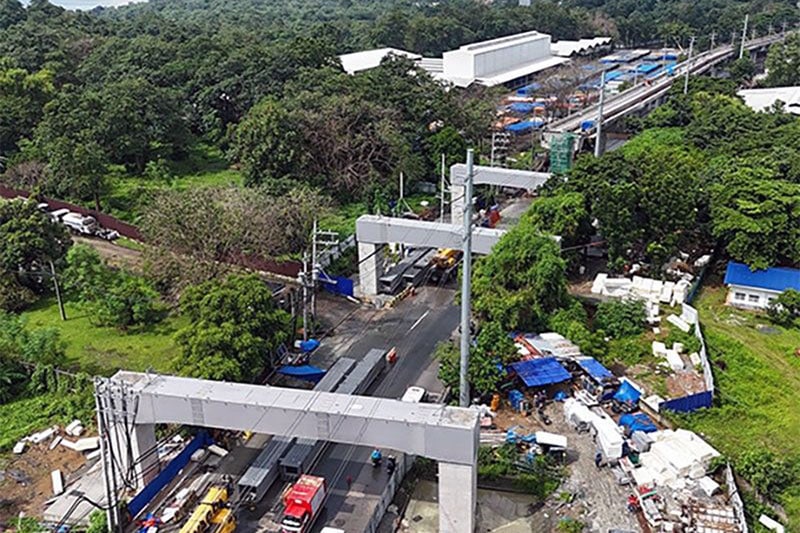The Philippines, with its tropical beaches, welcoming locals, and rapidly developing real estate market, is a popular destination for both local and foreign property investors. However, buying property in the Philippines comes with specific legal considerations, particularly for foreign buyers. This guide outlines the key laws, legal requirements, and practical steps to help you navigate the process smoothly.
Or feel free to send us a note and our team will be happy to assist you in any matters.
🇵🇭 Can Foreigners Own Property in the Philippines?
🔒 The Short Answer: No, with Key Exceptions
Under the Philippine Constitution (Article XII, Section 7), foreigners are prohibited from owning land in the Philippines. However, there are legal workarounds and alternative forms of property ownership, including:
![]()
✅ What Foreigners Can Own:
- Condominium units (up to 40% of a building’s total unit floor area)
- Buildings or houses (but not the land beneath them)
- Shares in corporations that own land, provided foreign ownership does not exceed 40%
🧾 Legal Basis: Key Laws Governing Property Ownership
| Law | Relevance |
|---|---|
| 1987 Constitution, Art. XII Sec. 7 | Prohibits land ownership by foreigners |
| Commonwealth Act No. 141 (Public Land Act) | Outlines land classification and alienable lands |
| Republic Act No. 4726 (Condominium Act) | Allows foreigners to own condo units within the 40% cap |
| Anti-Dummy Law (Commonwealth Act No. 108) | Penalizes use of Filipino “fronts” to circumvent ownership laws |
| Republic Act No. 7042 (Foreign Investments Act) | Governs foreign ownership in corporations and real estate |
🧑🤝🧑 Foreign Ownership Workarounds
![]()
1. Buying a Condo Unit
- Must be in a condo project registered with the HLURB (now DHSUD).
- Foreigners can collectively own up to 40% of total units.
2. Lease Agreements
- You may lease land for up to 50 years, renewable for 25 more years.
- Allows foreigners to build structures and own the building, but not the land.
3. Corporation Ownership
- Set up a Philippine corporation with at least 60% Filipino ownership.
- Corporation can then legally own land.
4. Married to a Filipino Citizen
- Land can be titled in the Filipino spouse’s name.
- Foreign spouse can have usufructuary rights but cannot be on the land title.
📋 Legal Requirements for Buying Property
![]()
🔎 Due Diligence
Before purchasing, always verify:
- Title (Original/Transfer Certificate of Title)
- Tax Declaration
- Zoning Compliance
- Back taxes, liens, or encumbrances
📝 Legal Steps for Land/House Purchase
-
Offer to Buy & Agreement
-
Negotiate terms and sign a Letter of Intent or Reservation Agreement.
-
-
Contract to Sell
-
Drafted once due diligence is completed.
-
-
Deed of Absolute Sale (DOAS)
-
Signed when full payment is made.
-
-
Notarization
-
DOAS must be notarized to become legally binding.
-
-
Tax Payments
- Capital Gains Tax (6% of selling price or zonal value, whichever is higher)
- Documentary Stamp Tax (1.5%)
- Transfer Tax (0.5%–0.75%)
- Registration Fee (varies)
-
Title Transfer
-
Register with the Registry of Deeds and update the Tax Declaration at the local Assessor’s Office.
-
![]()
🏢 Buying a Condo: Process & Requirements
- Check Developer Accreditation with the DHSUD
- Sign a Reservation Agreement
- Pay the Down Payment (usually 10–30%)
- Review the Master Deed and Declaration of Restrictions
- Ensure compliance with the 40% foreign ownership cap
![]()
🔑 Important Notes for Foreign Buyers
- Using a Filipino name as a front is illegal and penalized under the Anti-Dummy Law.
- Title verification must be done through the Land Registration Authority (LRA) or Registry of Deeds.
- Use a licensed real estate broker (accredited by PRC) for a safer transaction.
- Engage a real estate lawyer, especially for corporate or leasehold purchases.
💼 Can Foreigners Invest Through Corporations?
Yes, but under the Foreign Investments Act, a foreigner may only invest in real estate through a corporation with at least 60% Filipino ownership. Foreigners may own up to 40% of the shares. This corporation can buy land but cannot be a dummy setup; it must be a legitimate business with capital and operations.
🧑🌾 Agricultural Lands
![]()
Even Filipino citizens face restrictions:
- Maximum of 5 hectares for individuals
- Foreigners cannot own agricultural land, even via corporations, unless granted specific exemptions (e.g., joint ventures under the Agrarian Reform Program).
🏘️ Can You Buy Property as a Former Filipino?
Yes. Under the Dual Citizenship Law (RA 9225) and the Balikbayan Program:
- Former Filipinos can own up to 1,000 sq. meters of urban land or 1 hectare of rural land.
- Must present proof of former Philippine citizenship.
🛑 Red Flags to Watch Out For
![]()
- Titles that aren’t Torrens-registered
- “Tax Declaration only” properties (not full ownership)
- Incomplete paperwork or payments
- Illegal subdivisions or non-HLURB accredited projects
- Sellers unable to present the Owner’s Duplicate Certificate of Title
🌅 Why Buying Property in the Philippines is a Great Idea
The Philippines offers a unique blend of natural beauty, economic potential, and cultural warmth that makes property ownership not just practical but deeply rewarding. Here are key reasons why investing in real estate in the Philippines makes sense:

🏖 1. Paradise Locations at Affordable Prices
- Beachfront properties, mountain-view lots, and tropical island homes are far more affordable than in most Western or Asian countries.
- For example, you can buy a beachfront lot in Palawan, Siargao, or Guimaras at a fraction of the cost of similar property in Bali or Thailand.
👉 Ideal for retirement homes, vacation rentals, or remote living setups.
📈 2. Rising Property Values
- Urban and semi-rural areas alike are experiencing steady real estate appreciation.
- Hot spots like Metro Manila, Cebu, Davao, and tourist zones (El Nido, Bohol, Siargao) have seen property values increase by 5–15% annually.
👉 Buy now, profit later through capital gains or rentals.
👷 3. Infrastructure Boom

- Massive government investments under the “Build, Build, Build” program continue to improve airports, roads, seaports, and bridges nationwide.
- Accessibility to remote areas like Palawan and Northern Mindanao is improving, unlocking hidden property value.
👉 Improved access = increased land value.
🧑💻 4. Growing Demand for Rentals & Tourism Properties
![]()
- The booming Airbnb, eco-tourism, and remote work markets make vacation rentals and small resorts highly profitable.
- More digital nomads and retirees are looking for long-term rentals with scenic views and quiet surroundings.
👉 Turn your property into a passive income stream.
🌎 5. Expanding Expat and Retirement Market

- With over 300,000 foreigners living in the Philippines, the country has become a haven for retirees, especially under the Special Resident Retiree’s Visa (SRRV) program.
- English-speaking locals, warm hospitality, and affordable healthcare are major draws.
👉 Many retirees look to buy or rent, creating a strong resale or lease market.
🏛 6. Strong Legal Ownership (Torrens System)
- The Philippines uses a Torrens Title system, which guarantees land ownership once properly registered.
- This gives you legal certainty and protection, rare in many developing markets.
👉 As long as due diligence is done, ownership is secure and enforceable.
📊 7. High Yield Potential
![]()
- Gross rental yields in prime areas (e.g., BGC, Makati, Cebu IT Park) range between 6–8% annually, higher than many Southeast Asian countries.
- Even provincial properties can yield well with proper development and tourism marketing.
👉 More bang for your investment buck.
👨👩👧 8. Ideal for OFWs and Filipinos Abroad
- Property is a popular wealth-building strategy among Overseas Filipino Workers.
- Real estate serves both as an investment and a long-term plan for retirement or family use back home.
👉 Secure your future while helping your family today.
💰 9. Low Entry Barriers Compared to Other Countries
![]()
- No annual property tax for vacant lots (only a small Real Property Tax once improved).
- You can start small: subdivision lots, farm lots, or house-and-lot packages are available from ₱500,000 up.
👉 Begin investing without massive capital.
🌴 10. Untapped Gems in Emerging Areas
- Locations like Guimaras, Romblon, Camiguin, Zambales, and Antique are still undervalued — but slowly rising in popularity.
- Early investors stand to gain the most as these places develop.
👉 Get in early before the surge.
![]()
🧠 Final Insight and Contact
Buying property in the Philippines isn’t just about bricks and land — it’s about owning a piece of paradise in one of the most naturally blessed and culturally rich countries in Asia. Whether you’re looking to build a home, launch a resort, retire by the sea, or flip lots as a business — the potential is real.
📌 Just remember: Always align your investment with the law, and do thorough due diligence.
Feel free to contact us if you have any questions:
We are a family operation managing private custom boat tours in the beautiful Palawan area, and are happy to help travelers with their plans through the country, having traveled a lot of it ourselves and planning to visit it all.